Recently, Malaysia has been hit repeatedly by floods during the year-end monsoon season also known as La Niña, causing massive damage to homes, infrastructure, and livelihoods.
As floodwaters rise, entire neighbourhoods can be submerged, houses may collapse or be rendered uninhabitable, and thousands of homeowners face devastating losses.
Now imagine this: a natural disaster strikes your home, and it collapses or becomes irreparable. In the midst of the chaos, a pressing question arises: do you still have to pay your home loan?
Many people assume that if their property is destroyed, the loan obligation disappears, but the reality is far more complex.
In this article, we’ll explore what happens to your home loan after a natural disaster, whether insurance or relief can help, and what steps you should take to protect yourself financially.
Key Takeaways:
- Even if a property is destroyed by floods or other natural disasters, borrowers are still legally required to continue loan repayments.
- But MRTA or MLTA can help cover outstanding loans if your house is damaged or you face unexpected hardship.
- While MRTA/MLTA protects the loan, homeowners insurance safeguards the property itself against risks like floods, fires, or landslides.
- Understanding your insurance coverage and disaster preparedness can help reduce financial stress in case of unexpected home damage.
Do I Still Have to Pay Home Loan After a Disaster?
- The Answer to Your Question
- Step 1: Understanding Home Loan Obligations After a Natural Disaster
- Step 2: Understanding The Types of Insurance
- Step 3: Types of Compensation
- Why We Need Home Insurance in Malaysia
- How Can We Minimize the Impact of Natural Disasters on Our Homes?
- Frequently Asked Questions (FAQs)

The Answer to Your Question
So, if my house collapses, do I still have to pay my home loan?
| In such scenario, you might be thinking about two key concerns: 1. Opt out of the housing contract due to unexpected natural disaster. 2. Get your money back considering the property has been damaged. |
The short answer is yes, most losses will be borne by the homeowner themselves.
However, the long answer is it also depends on your insurance policy as certain insurance company may offer some emergency relief.
So, if your house collapsed, it does not mean that you have to give up on your new home entirely. In most case, the project will continue and your home will be rebuilt.
In other cases, you might feel uneasy about living there due to safety concerns. So, what do you need to know about before ending all housing contract?

Step 1: Understanding Home Loan Obligations After a Natural Disaster
After signing the Sales & Purchase Agreement (SPA), the home is legally yours, and you’re committed to making payments. This makes terminating the contract challenging, even if the condo collapses.
Standard SPA does not automatically allow cancellation in such cases, but if the developer agrees, both parties can enter a termination and settlement agreement.
Though it may come with penalties or conditions outlined in your SPA.
Furthermore, ending your SPA only cuts ties with the developer, not the bank. The bank only acts as your financier thus it does not cancel your housing loan which you still have to repay what you owe.
This means you could lose the condo but still be stuck paying for it.
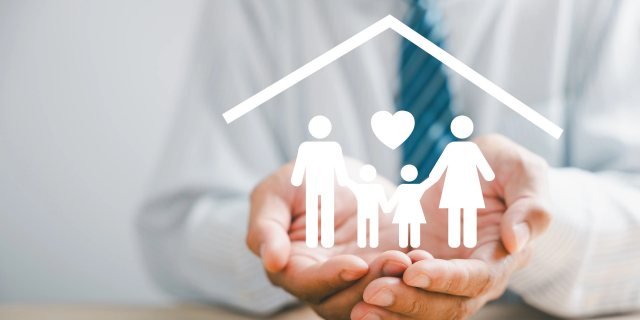
Step 2: Understanding The Types of Insurance
These are three common types of home insurance bought by Malaysians.
Understanding the types of insurances is essential for homeowners to ensure they are fully covered in the event of unexpected circumstances.
1. Mortgage Level Term Assurance (MLTA)
MLTA offers life insurance with added security, savings, and potential returns.
If the borrower is no longer around, the insurance company pays off the remaining mortgage debt, allowing dependents to stay in the property without financial worry.
2. Mortgage Reducing Term Assurance (MRTA)
MRTA is an insurance plan that decreases over time to cover the outstanding home loan. It protects the bank in case of the borrower’s death or total permanent disability (TPD).
If the loan isn’t fully settled, the bank may still seek payment from the family.
Here’s a quick difference:
| Feature | MRTA (Mortgage Reducing Term Assurance) | MLTA (Mortgage Level Term Assurance) |
|---|---|---|
| Coverage Type | Reduces over time (matches outstanding loan balance) | Fixed coverage amount throughout policy term |
| Main Purpose | Protects the bank (settles outstanding loan if borrower passes away/TPD) | Protects borrower’s family (settles loan + extra payout balance) |
| Beneficiary | Bank (loan will be cleared) | Borrower’s family/nominee |
| Premium Payment | Usually one-time lump sum (can be financed into loan) | Regular premiums (monthly/annually) |
| Cost | Generally cheaper (lower premiums) | More expensive (because of fixed coverage + benefits) |
| Transferable? | No – tied to one property/loan only | Yes – can be transferred to another loan/property |
| Cash Value / Savings | No cash value | Some MLTA policies may have cash value / investment element |
| Best For | Homebuyers who want basic, affordable protection | Homebuyers who want flexibility & family protection |
3. Fire Insurance
Fire insurance covers the property. It compensates for damages caused by fire, water damage, and other specific circumstances.
For certain insurance companies, they may offer coverage for natural disasters, including earthquakes.
| Below are the list of insurance companies offering such coverage: 1. Allianz Smart Home Cover 2. Allianz HouseOwner & Householder Insurance 3. AIA A-Essential Home 4. Chubb My Home Insurance 5. Takaful myHouseowners & Householders 6. Great Eastern Easi-Home |
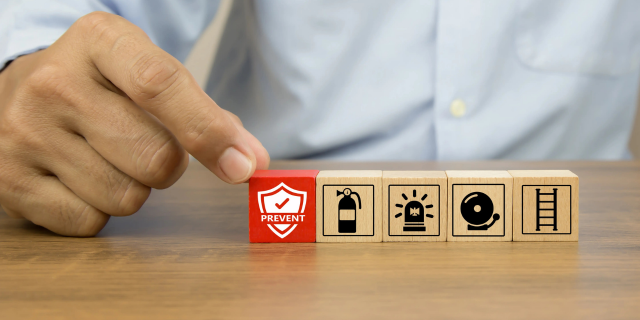
Comparison between MRTA, MLTA, and Fire Insurance
| MLTA | MRTA | Fire Insurance | |
| Housing loan amount (90% financing) | RM300,000 | RM300,000 | – |
| Tenure | 30 years | 30 years | 1-year policy, renewable annually |
| Interest Rate | 5% | 5% | – |
| Total cost of premiums | RM18,841 | RM132,120 | RM500 – RM2,000 per year |
| Payment method | Usually paid as a one-time lump sum upfront | Paid on a monthly basis so the payments are stretched out over 30 years | Paid annually |
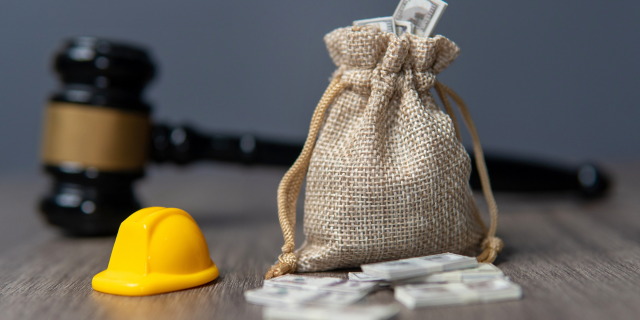
Step 3: Types of Compensation
As mentioned above, you have the legal duty to fulfill your responsibilities stated in that contract.
However, you can get compensation from the developer if they did not fulfill their responsibilities instead. In this case, breaching the contract in terms of:
- Negligence: The developer’s carelessness such as poor selection of contractors and materials, was the reason the condo collapsed in the first place.
- Issued Stop Work Order: The developer issued no construction work can be carried out for the time being.
- The developer has no progress of work in 6 months or more.
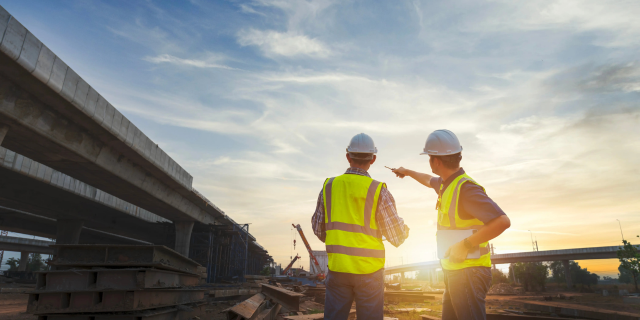
Why We Need Home Insurance in Malaysia
In Malaysia, natural disasters such as floods, landslides, and storms are becoming more frequent, and these can cause serious damage to your property.
Without home insurance, you would still need to continue paying your monthly instalments to the bank even if your house is unlivable. This can put a huge financial burden on you and your family.
Home insurance, on the other hand, ensures that you are financially protected — it can cover the cost of repairs, rebuilding, or even help clear your outstanding loan, depending on the type of coverage you choose.
Simply put, home insurance provides peace of mind, knowing that both your property and your family’s financial future are safeguarded against unexpected events.
How Can We Minimize the Impact of Natural Disasters on Our Homes?
- Ensure Proper Foundation: Have a solid and well-engineered foundation to support the structure of your home and invest in professional assessments before construction to avoid issues later on.
- Regular Maintenance: Conduct regular checks on your home, particularly for structural weaknesses, cracks in the walls, roof, or foundation.
- Choosing Experienced Developers and Contractors: Work with reputable and experienced builders who adhere to local building codes and safety standards.
- Proper Drainage Systems: Ensure your home has a well-designed drainage system to prevent water accumulation around the foundation as it can weaken the structure over time.
- Monitor Soil Movement: Pay attention to soil erosion or shifting, especially if your home is built on unstable ground.
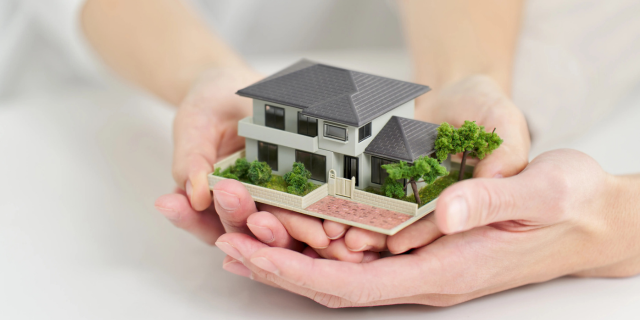
In conclusion, while purchasing a home can be a good investment, these proactive measures will help safeguard your home and ensure you’re better equipped to handle unexpected challenges.
Secondly, it’s crucial to maintain a reasonable level of financial leverage and ensure your housing expenses do not exceed 30% of your monthly income.
In case of unforeseen events like a house collapse, being financially prepared with sufficient savings can prevent unnecessary reliance on friends or family.
Always prioritize your financial stability and keep a safety net for emergencies.
Frequently Asked Questions (FAQs)
If my house collapses in a natural disaster, do I still have to pay the home loan?
Yes — you are still legally required to continue making the loan repayments.
Can I terminate the SPA (Sales & Purchase Agreement) if the property is destroyed?
Double-check with your developer. Termination is only possible if they agree to a settlement agreement.
Does MRTA or MLTA cover losses from natural disasters like collapse or floods?
They may help cover outstanding loan amounts in certain cases, depending on your policy.
What role does fire (or property) insurance play in this scenario?
Fire/property insurance helps protect the property itself against damage from events like floods, fire, or landslides.
If the developer is negligent or fails to uphold construction standards, can I seek compensation?
Yes — you may have recourse if the collapse was due to developer negligence or breach of contract.
Are you dealing with the aftermath of a natural disaster or looking for an expert to handle your home inquiries? Let our trained professionals guide you through the process.
I
Continue Reading:
